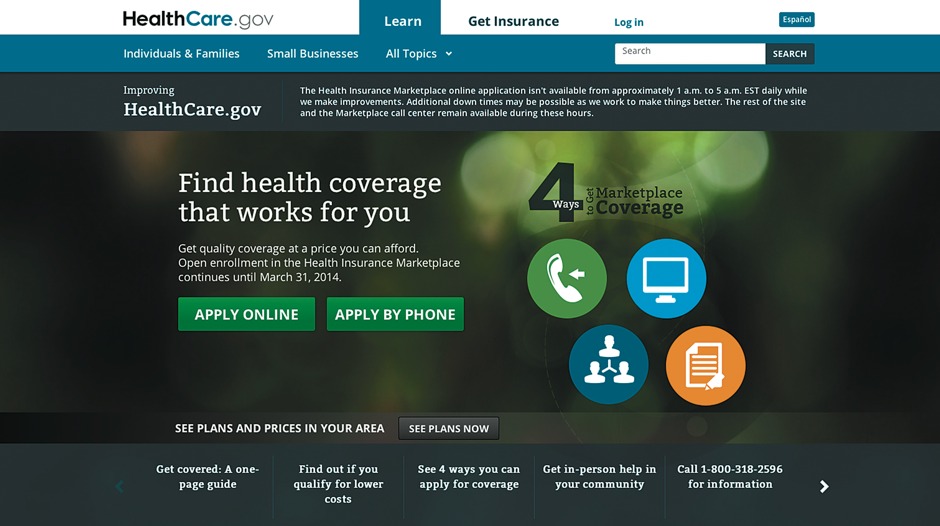On November 14, six weeks after the failed launch of HealthCare.gov, the federal government’s insurance marketplace website and the public face of the endlessly contested Affordable Care Act, President Obama stood behind a podium at the White House and offered a mea culpa that was anything but. True, he did repeat “that’s on me” and “that’s on us” when he wasn’t invoking jocular sports metaphors (“we fumbled the rollout on this health care law”), but he also said this:
I was not informed directly that the website would not be working the way it was supposed to. Had I been informed, I wouldn’t be going out saying, boy, this is going to be great. I’m accused of a lot of things, but I don’t think I’m stupid enough to go around saying, this is going to be like shopping on Amazon or Travelocity a week before the website opens if I thought that it wasn’t going to work.
And so we are left to wonder how it was that the president not only had not been informed (note the passive construction), but how it was that he did not make it a point to be informed, not merely because he is the president and that’s his job, not merely because he has made health care the legislative priority of his administration, not merely because affordable health care is the hook on which he hopes to hang his presidential legacy, and not merely because the Republicans have been trying to thwart him at every turn, but because of all of these. Knowing how sensitive Americans are to the shortcomings of big government should have made Obama especially vigilant to the disasters ahead if his administration botched HealthCare.gov. On November 19, his spokesman, Jay Carney, admitted that the president had in fact been briefed in April about the danger that the website would fail when it was launched in October. His carelessness will be a good place for historians to begin to unwrap the enigma of a president who appears to run the country on a need-to-know basis, ceding what needs to be known to other people.
In this case, other people knew almost from the start that the website was going to be difficult to build. According to The Washington Post, in May 2010 an outside health adviser told Larry Summers, then the director of the National Economic Council, and Peter Orszag, the head of the Office of Management and Budget, that “no one in the administration was ‘up to the task’ of overseeing the construction of an insurance exchange and other intricacies of translating the 2,000-page statute into reality.” Subsequently Summers and Orszag, according to the Post, recommended that the president appoint a health reform “czar” from outside the administration with triple expertise in business, technology, and the health insurance industry.
This Issue
December 19, 2013
Mike
An American Romantic
Gazing at Love






